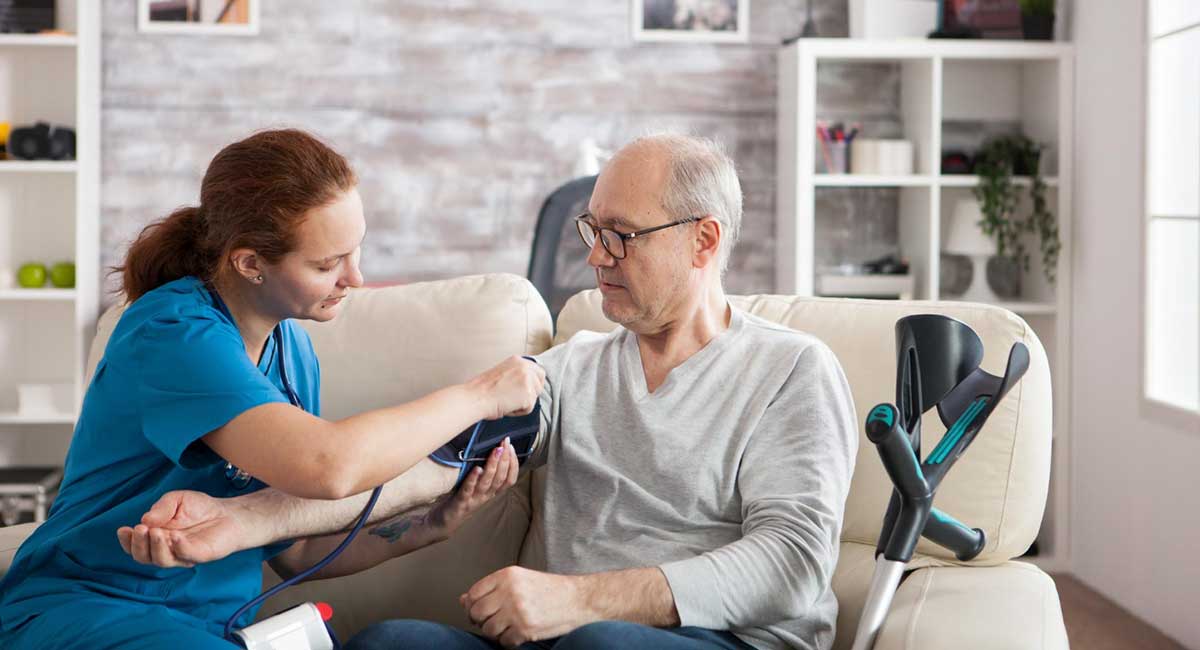When it comes to aging gracefully, many seniors focus on heart health, cognitive wellness, and maintaining an active lifestyle. However, one critical aspect that often goes unnoticed is foot and ankle health. Seniors rely heavily on their feet to maintain independence, and even minor foot problems can escalate into severe complications if left untreated. That’s why seniors need regular foot and ankle checkups—to safeguard their ability to move freely and avoid preventable medical crises.
The feet endure decades of wear and tear, and without consistent care, seniors face an increased risk of discomfort, injury, and mobility challenges. In this detailed guide, we’ll explore the key reasons why routine podiatric care is essential for seniors, the risks of neglecting foot health, and how preventive checkups can profoundly enhance quality of life.
The Aging Foot: Why Extra Care is Essential
As we grow older, our bodies naturally undergo changes, and our feet are no exception. Seniors need regular foot and ankle checkups because aging causes the skin to lose elasticity, the circulation to slow down, and the bones and joints to weaken. These changes make the feet more susceptible to issues such as bunions, hammertoes, corns, calluses, and fungal infections.
Additionally, the fat pads that cushion the soles of our feet become thinner with age, which can result in pain during walking or standing. Seniors may also experience dry, cracked skin and brittle toenails, both of which can lead to infections if not properly managed. Regular checkups enable podiatrists to monitor these age-related changes and offer solutions like moisturizing treatments, orthotics, or medical interventions to keep feet comfortable and functional.
Falls: A Leading Cause of Injury Among Seniors
One of the most compelling reasons why seniors need regular foot and ankle checkups is the heightened risk of falling. The Centers for Disease Control and Prevention (CDC) reports that falls are the leading cause of both fatal and nonfatal injuries among older adults. Foot pain, untreated infections, or poorly fitting shoes can all compromise balance and increase the likelihood of a dangerous fall.
Falls don’t just cause bruises; they often result in broken bones, head injuries, and long-term disability. Routine podiatric visits can play a crucial role in fall prevention by identifying and correcting issues that impair balance and mobility. This may include recommending physical therapy, adjusting orthotics, or even making small adjustments to footwear to improve stability.
The Impact of Chronic Conditions: Diabetes and Arthritis
A significant number of seniors live with chronic conditions that directly impact foot health. Diabetes, for instance, can lead to neuropathy—a form of nerve damage that causes numbness and tingling in the feet. This numbness means that injuries such as cuts, blisters, or ulcers can go unnoticed and become infected quickly, sometimes resulting in serious consequences like amputation.
Arthritis is another common condition that affects foot health by causing joint pain, stiffness, and swelling. Over time, arthritis can deform foot structure, making it difficult to walk without pain. Seniors need regular foot and ankle checkups to manage these chronic issues proactively. Podiatrists can develop personalized care plans that include regular monitoring, pain management strategies, and treatments to keep feet healthy and functional despite chronic illness.
Peripheral Artery Disease and Nerve Monitoring
Many seniors are unaware that their foot health can be an indicator of broader systemic issues. Conditions like Peripheral Artery Disease (PAD) reduce blood flow to the extremities and can cause cold feet, cramping, discoloration, and slow-healing wounds. Left unchecked, PAD can lead to serious complications that may require hospitalization.
Foot and ankle checkups often include circulation assessments and nerve testing to catch these problems early. Podiatrists are trained to detect subtle signs of nerve and blood flow issues, ensuring that seniors receive prompt referrals to specialists if needed. This proactive approach not only preserves foot health but can also uncover life-threatening systemic diseases before they escalate.
The Role of Preventive Care in Senior Wellness
Preventive care is the cornerstone of good health, and this is especially true when it comes to foot and ankle health. Seniors need regular foot and ankle checkups to catch potential problems early—before they turn into major health crises. Preventive care includes routine skin and nail inspections, guidance on foot hygiene, and advice on choosing the right footwear.
Podiatrists also keep an eye out for pressure sores, corns, calluses, and ingrown toenails, all of which can become infected if ignored. By addressing these minor issues early, seniors can avoid painful procedures and maintain optimal foot function. Preventive visits also provide an opportunity to educate seniors on daily foot care routines that can make a big difference in long-term health.
How Foot Pain Impacts Quality of Life
Foot pain is more than just a nuisance—it can have a profound impact on a senior’s overall well-being. When walking becomes painful, many seniors begin to limit their activities, leading to a sedentary lifestyle. Reduced activity not only contributes to weight gain but also increases the risk of heart disease, diabetes, and depression.
Regular foot and ankle checkups help seniors stay active by diagnosing and treating foot pain effectively. Whether it’s plantar fasciitis, heel spurs, or bunions, a podiatrist can recommend solutions that reduce discomfort and restore mobility. Staying mobile allows seniors to engage in the activities they love, from gardening to spending time with family, which greatly enhances their quality of life.
Common Treatments and Solutions
Seniors who attend regular foot and ankle checkups gain access to a range of treatments that can address common foot issues. These treatments may include:
-
Custom orthotics to provide extra cushioning and support.
-
Debridement of calluses and corns to prevent ulcers.
-
Toenail care to prevent fungal infections and ingrown nails.
-
Stretching and strengthening exercises to improve balance.
By taking advantage of these services, seniors can avoid unnecessary suffering and maintain strong, healthy feet well into their later years.
What to Expect During a Checkup
For many seniors, the thought of a medical checkup can be daunting. However, foot and ankle exams are typically non-invasive and straightforward. A standard checkup includes an examination of the skin, nails, and bones; a test of nerve function and circulation; and an assessment of foot alignment and gait.
During these visits, podiatrists also offer personalized advice on footwear, hygiene, and lifestyle choices to support long-term foot health. Seniors need regular foot and ankle checkups not only to catch existing problems but also to receive ongoing guidance tailored to their evolving needs.
Conclusion: Prioritize Your Foot Health Today
Foot and ankle health plays a pivotal role in maintaining independence, mobility, and quality of life for seniors. Routine podiatric care is essential for preventing injuries, managing chronic conditions, and detecting early signs of systemic illnesses. By investing in regular checkups, seniors can avoid the pitfalls of untreated foot problems and enjoy a more active, pain-free life.
Don’t wait for foot pain or discomfort to take control of your life. Prioritize your foot health now and reap the long-term benefits of proactive care.
Contact Garden State Foot & Ankle Group
For compassionate, expert care tailored to your needs, reach out to the specialists at Garden State Foot & Ankle Group. We are dedicated to helping seniors maintain healthy, comfortable feet through all stages of life.
Toms River Office
📍 664 Commons Way Building 1
Toms River, NJ 08755
📞 Phone: (732) 557-9900
📧 Email: gsfagroup@gmail.com
Belleville Office
📍 1 Clara Maas Drive
Belleville, NJ 07109
📞 Phone: (973) 450-3035
🌐 Website: gsfagroup.com



0 Comments